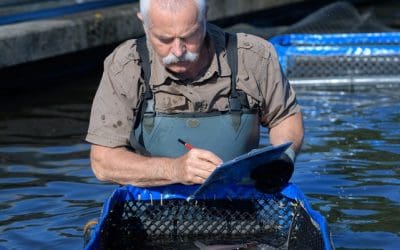
Photo by Schäferle
The “blue economy” refers to the sustainable use of ocean resources for economic growth, improved livelihoods, and jobs, while preserving the health of ocean ecosystems. The development of the blue economy is a complex and multi-faceted process that requires careful consideration of various legal issues. Here are some key legal issues that businesses should be aware of when developing the blue economy.
Marine spatial planning
Marine spatial planning (MSP) is a process for managing and regulating the use of ocean resources. It involves mapping the ocean’s resources and space, identifying areas of conservation, and allocating areas for different uses, such as fishing, aquaculture, and offshore energy production. Businesses in the blue economy need to be aware of the MSP process and comply with the regulations and guidelines set out in the MSP plan. Failure to comply with the MSP plan can result in fines or legal action.
International and domestic laws
There are a variety of domestic and international laws and regulations that apply to businesses in the blue economy. These laws can have a significant impact on business operations, and companies need to be aware of their obligations and compliance requirements. Some key laws and regulations that businesses in the blue economy should be aware of include:
United Nations Convention on the Law of the Sea (UNCLOS): UNCLOS is an international treaty that sets out the legal framework for the use of the world’s oceans and their resources. The treaty establishes the rights and responsibilities of nations with respect to their use of the oceans, and it provides a framework for the conservation and management of marine resources.
International Convention for the Prevention of Pollution from Ships (MARPOL): MARPOL is an international treaty that aims to prevent marine pollution from ships. The treaty sets out rules and regulations for the discharge of pollutants from ships and requires ships to carry a pollution prevention certificate.
Marine Mammal Protection Act (MMPA): The MMPA is a U.S. law that aims to protect marine mammals from human activities. The law prohibits the taking, killing, or harassment of marine mammals in U.S. waters.
Environmental impact assessments
Many businesses in the blue economy can have a significant impact on the environment. As a result, they may be required to undergo an environmental impact assessment (EIA) before starting operations. An EIA is a process for evaluating the potential environmental impacts of a proposed project or activity and identifying measures to mitigate those impacts. The EIA process can be time-consuming and expensive, but it is an important step in ensuring that businesses in the blue economy operate in an environmentally sustainable manner.
Intellectual property
The blue economy is a rapidly developing field, with new technologies and innovations emerging all the time. Businesses in the sector need to be aware of intellectual property issues, such as patents, trademarks, and copyrights, to protect their inventions and innovations from competitors. In some cases, businesses may need to work with legal experts to develop strategies to protect their intellectual property rights.
Liability and insurance
Businesses operating in the blue economy face a variety of risks, such as accidents, environmental damage, and natural disasters. As a result, companies need to have adequate liability insurance in place to cover any potential claims or damages. They also need to be aware of their legal liabilities and ensure they are taking adequate steps to mitigate any potential risks. For example, businesses involved in offshore energy production may need to take steps to prevent oil spills and other accidents, while businesses involved in aquaculture may need to take steps to prevent disease outbreaks in their fish stocks.
In conclusion, developing the blue economy requires careful consideration of various legal issues. By being aware of these issues and taking steps to comply with relevant laws and regulations, businesses can operate in a sustainable and responsible manner while also realizing the economic benefits of the blue economy.



